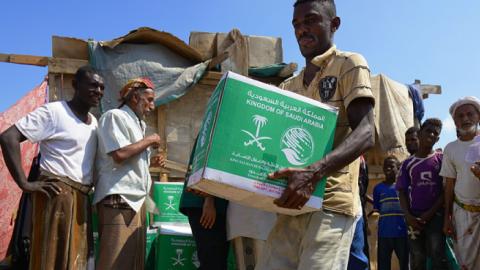In the current US political climate, we can split our traditional allies into teams: Democrats generally favor the Islamic Republic, while Republicans are too afraid of criticism to favor anyone. Downgrading or even cutting off ties with Saudi Arabia is a popular idea among Democrats and some Republicans as we get closer to the 2020 election.
The idea is the US should punish Saudi Arabia because of the Khashoggi affair, but the reality is we need the guardians of Makkah and Madinah and our main ally in the Middle East to help us curb Iranian influence in Iraq and Syria, to fight Daesh, balance Iran in the region, and support the peace process. The Kingdom is a necessary ally and the Islamic Republic of Iran is a dedicated enemy.
The murder of Jamal Khashoggi and the Yemen campaign are two different things. One was an unnecessary failure — a crime (whereby the trials are ongoing and being attended by representatives from the embassies of the five permanent members of the UN Security Council) — while the other is a necessary campaign that is failing. And, if it ultimately fails, then Iran will have another Hezbollah in the region — and that’s the goal.
The Yemen campaign is failing in the public relations arena, with the following narrative taking hold: The Saudis are killing innocent civilians and, if the Houthis are moving toward Iran and launching missiles at Saudi cities, it is because the Saudis gave them no choice.
Ending US support to the Saudi effort in Yemen would be a win for Iran and the Houthis, as well as a win for China and Russia, as they would step in to meet the Kingdom’s military needs.
But Saudi Arabia would not end its war in Yemen if the US withdrew its support. The Saudis argue that they cannot allow another Hezbollah-like entity to threaten the Kingdom from the south. On my visit, Saudi military representatives posed the question: What would the US do if a neighbor was lobbing missiles at its cities? Well, we would try to stop it. We would also inflict collateral damage with an enemy that launches attacks from populated areas, and we would predictably fail, like we have in Iraq and Afghanistan. Our adversaries ignore the critics and win; the US and its allies listen to biased critics and fail.
The US air campaigns in Iraq and Syria inflicted scores of civilian casualties under both Barack Obama and Donald Trump. But Russia, Iran, and Bashar Assad have killed more than 500,000 civilians in Syria.
The Saudis are going out of their way to show their targeting process is aligned with the Law of Armed Conflict (LOAC) and that they are rushing humanitarian aid in, only for it to be stopped by Iran’s Quds Force and the Tehran-backed Houthis. Few give the Saudis credit for trying to do this right.
Could one imagine a joint briefing by Russia, Assad and Iran on the targeting process in Syria because of concerns about the number of civilian casualties? The Russians have destroyed upwards of 20 hospitals and have shrugged off the criticism. Assad and his allies are responsible for more than 500,000 civilian deaths and the international community is willing to let him stay in power.
The former Obama team is telling the Islamic Republic to wait until next year’s presidential election and stay in the nuclear deal — help is coming. In the meantime, Democrat-controlled committees in Congress are looking at the Trump-Saudi alliance and trying to hurt it, while targeting Russia. But not Russia in Syria, Crimea, or the Ukraine — Russia on Twitter and Facebook.
Saudi Arabia has a 9/11, Al-Qaeda, Daesh, Yemen and Khashoggi problem with the American media and lawmakers. We need to get back to bipartisan criticism of the Islamic Republic, rogue NATO allies and despots, Russia and China, and terrorism. We can also criticize the Kingdom while working together — we cannot abandon the guardians of Makkah and Madinah.
The criticism of the Saudi campaign in Yemen is unbalanced. I have visited the Air Operations Center in Riyadh twice in the last two years and have seen the targeting process and the constraints that mirror US and NATO standards. We have heard from pilots who have participated in the campaign say time and time again that they have ignored targets because of concern for civilian casualties. Intelligence, surveillance and reconnaissance (ISR) assets spend upwards of 600 hours waiting for a high-value target to be clear of civilians.
I urged them to condense a six-hour ISR surveillance recording of an “expert” — a Hezbollah or Quds Force adviser — into a three-minute time-lapse clip to show off the Hezbollah technique of having children trail a slow-moving vehicle, walking with the target to keep the Saudis from striking. The Houthis know that the media and the West are ready to pounce on any targeting transgressions, so intentionally put civilians and children at risk with their movements.
Despite the fact that Saudi Arabia has contributed so much humanitarian aid to Yemen, it is still being wrongly portrayed in the Western media and not enough focus is placed on the Houthi attempts to block any aid. The world expects the Kingdom to spend lots of money on aid: The numbers don’t matter, nothing the Saudis do will. So they must win instead.
The Yemen campaign is mirrored on the U.S. campaigns in Iraq and Syria with one exception: The Yemen campaign is an air campaign without a ground force component or a ground victory to secure a path for humanitarian aid. Territory is being lost to the Houthis, allowing them to control the funnel for humanitarian aid and close it to hurt the Saudi cause. They then reflag the supplies and take credit for them.
The Houthis have also learned to use no-fire areas (NFAs) to their advantage. They have access to maps that show the NFAs and they move combatants to those areas to conduct rocket attacks and store weapons knowing the Saudis will not strike them there. They know that the UN would condemn any attack against these NFAs, so they move their assets and launching points there.
The Saudis want to do more and will, regardless of U.S. support.















